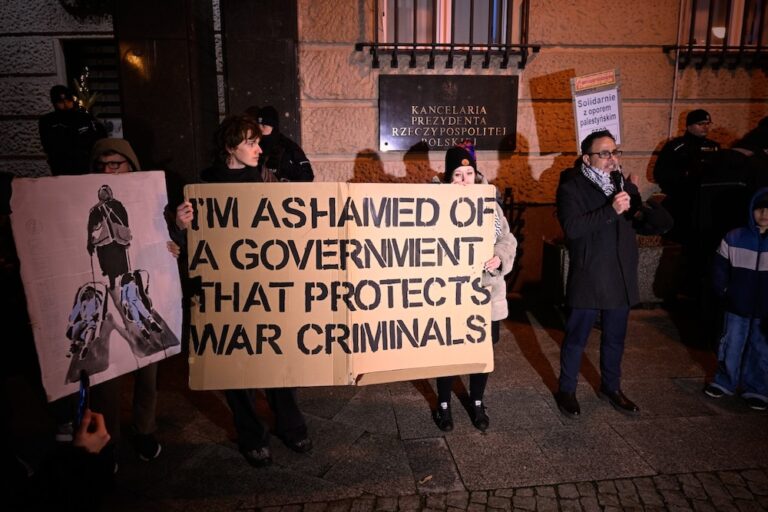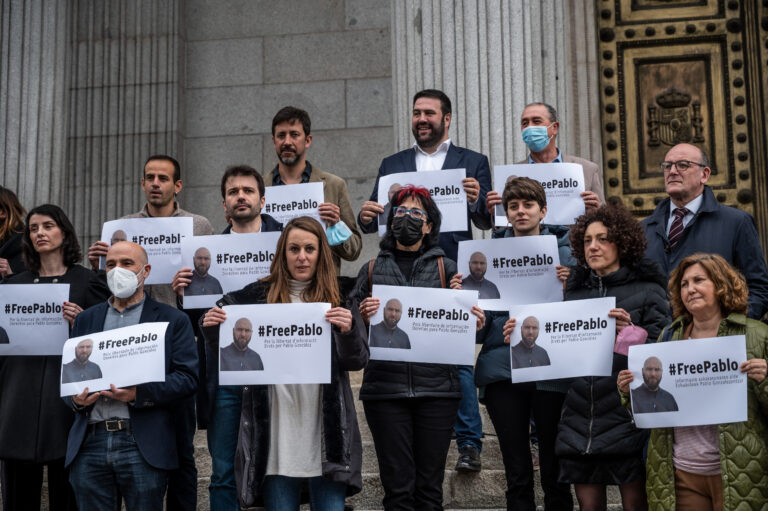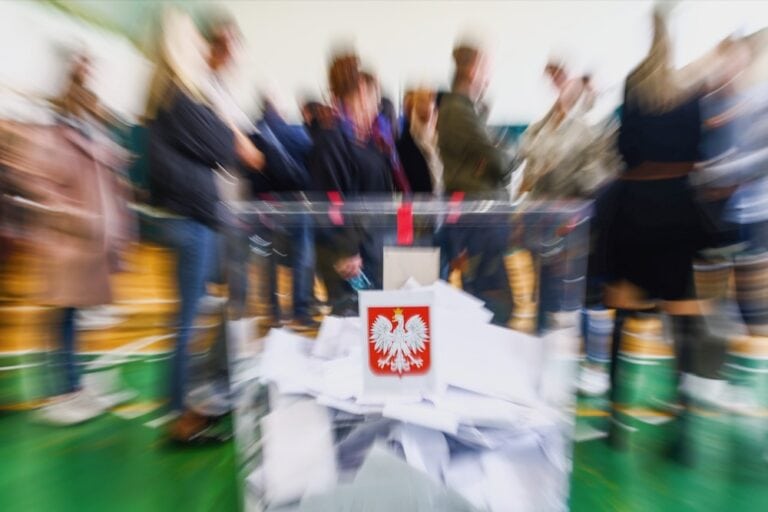(WPFC/IFEX) – The following is a 5 April 2002 WPFC letter to President Aleksander Kwasniewski and Prime Minister Leszek Miller: 5 April 2002 His Excellency Mr. Aleksander Kwasniewski President of the Republic of Poland Warsaw, Poland Fax (4822) 695-1109 His Excellency Mr. Leszek Miller Prime Minister of the Republic of Poland Warsaw, Poland Fax (4822) […]
(WPFC/IFEX) – The following is a 5 April 2002 WPFC letter to President Aleksander Kwasniewski and Prime Minister Leszek Miller:
5 April 2002
His Excellency
Mr. Aleksander Kwasniewski
President of the Republic of Poland
Warsaw, Poland
Fax (4822) 695-1109
His Excellency
Mr. Leszek Miller
Prime Minister of the Republic of Poland
Warsaw, Poland
Fax (4822) 621-8827
Your Excellencies:
We are writing you on behalf of the World Press Freedom Committee because we are deeply distressed by what appears to be an emerging pattern of legal harassment and of official attempts to undermine the essential financial independence of Poland’s leading free newspapers and of their parent companies — the daily Gazeta Wyborcza and its owner Agora, and the daily Rzeczpospolita and its majority shareholder Orkla.
The World Press Freedom Committee is comprised of 44 leading journalistic organizations on six continents, including groups representing both labor and management in the print and broadcast press. The WPFC has worked intensively in a large variety of ways to help promote and defend press freedom in Poland since the fundamental change in regime in 1989.
Using unusual fast-track procedures, the Polish government has hastily introduced a draft law apparently targeting Agora’s ownership of broadcasting outlets. There has been practically no consultation with the press about this draft law affecting it. The independent press in Poland has objected both to the content of the bill and to the secretive urgent procedures chosen by the authorities.
Various official spokesmen and ministers have publicly indicated that they are bent on
punishing Agora for its critical reporting and comment on government policy matters.
Simultaneously, the authorities have impounded the passports of the Polish representatives of the Norwegian company Orkla, which owns 51 percent of Rzeczpospolita, generally regarded as Poland’s newspaper of reference. The legal justification for restricting the movements of the newspaper’s management personnel is a relatively small amount of taxes that are in dispute. No serious observer believes that the newspaper’s managers would go into exile over such a dispute.
The State, meanwhile, is in the anomalous position for a modern democracy of continuing to hold 49 percent of the stock in Rzeczpospolita. The State seems to want to displace Orkla as the newspaper’s majority shareholder, a development that would run counter to the norm in the democratic world that governments and states do not control or publish general circulation news media.
Further, the government’s position as a stakeholder in the newspaper means that it appears as having an obvious conflict of interest in the outcome of the case. The Polish State should be working to divest itself of its remaining print press holdings, not increasing them, directly or indirectly.
The State also proposes to strengthen its hold over the national broadcasting outlets that it owns, instead of converting them into truly independent public service broadcasters along the lines of those in the most advanced democracies in Europe.
These developments raise very serious concerns about the approach of the government of Poland, a country that is a leading candidate to join the European Union, where respect for rigorous separation of the printed news media and the government is the accepted democratic rule.
Furthermore, the trend in advanced democracies is for the relaxation of cross-ownership rules between the print and the broadcast press, given that modern communication technology now makes possible a large variety of news media outlets in any given market. In any case, this is a matter for the administrators of general law against monopolies to consider, not for a broadcasting regulatory agency.
These attacks on the independence of the leading Polish press outlets inevitably bring to mind moves in Russia, also obviously governmentally inspired, to bring an end to independent broadcasting.
The emerging situation is in total contradiction with post-Communist developments in Poland, where it was generally thought that the establishment of press freedom was an irreversible feature of Polish democracy. If it now turns out that this was a mistaken assessment, then the friends of Poland would be very regretfully forced to make a heartbreaking revision of their views about the reality of Polish democracy. That could only hurt the cause of Poland’s acceptance as a full-fledged member of the democratic world.
Your Excellencies, we ask you in the interest of Poland’s own future to do everything in your respective moral and legal powers to see to it that press freedom is fully respected. It has been the symbol of Poland’s return to the democratic world. This advance must not be compromised, either in deed or in appearance.
Most respectfully,
Marilyn Greene
Executive Director
Ronald Koven
European Representative
cc: PAP, AP, AFP, DPA, Reuter, IFEX
Recommended Action
Similar appeals can be sent to:
His Excellency
Mr. Aleksander Kwasniewski
President of the Republic of Poland
Warsaw, Poland
Fax: +4822 695 1109
His Excellency
Mr. Leszek Miller
Prime Minister of the Republic of Poland
Warsaw, Poland
Fax: +4822 621 8827
Please copy appeals to the source if possible.


